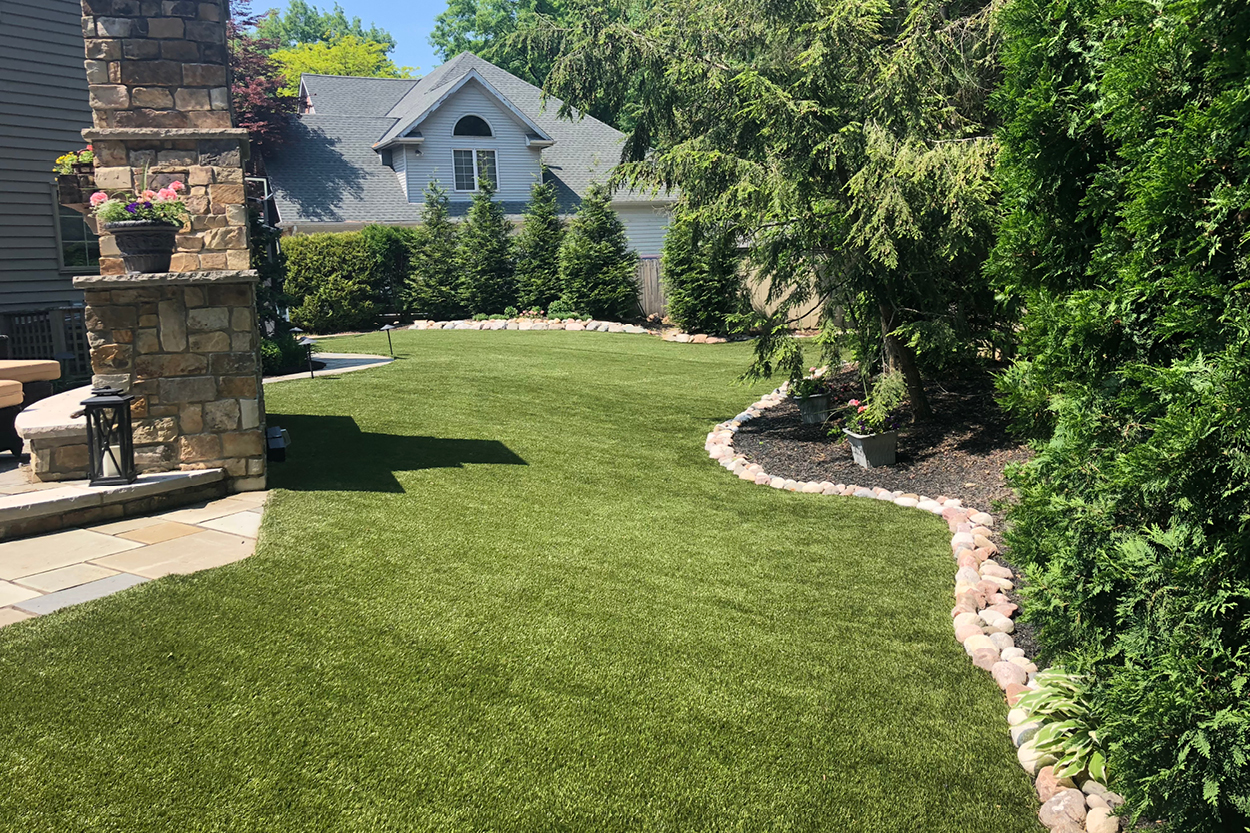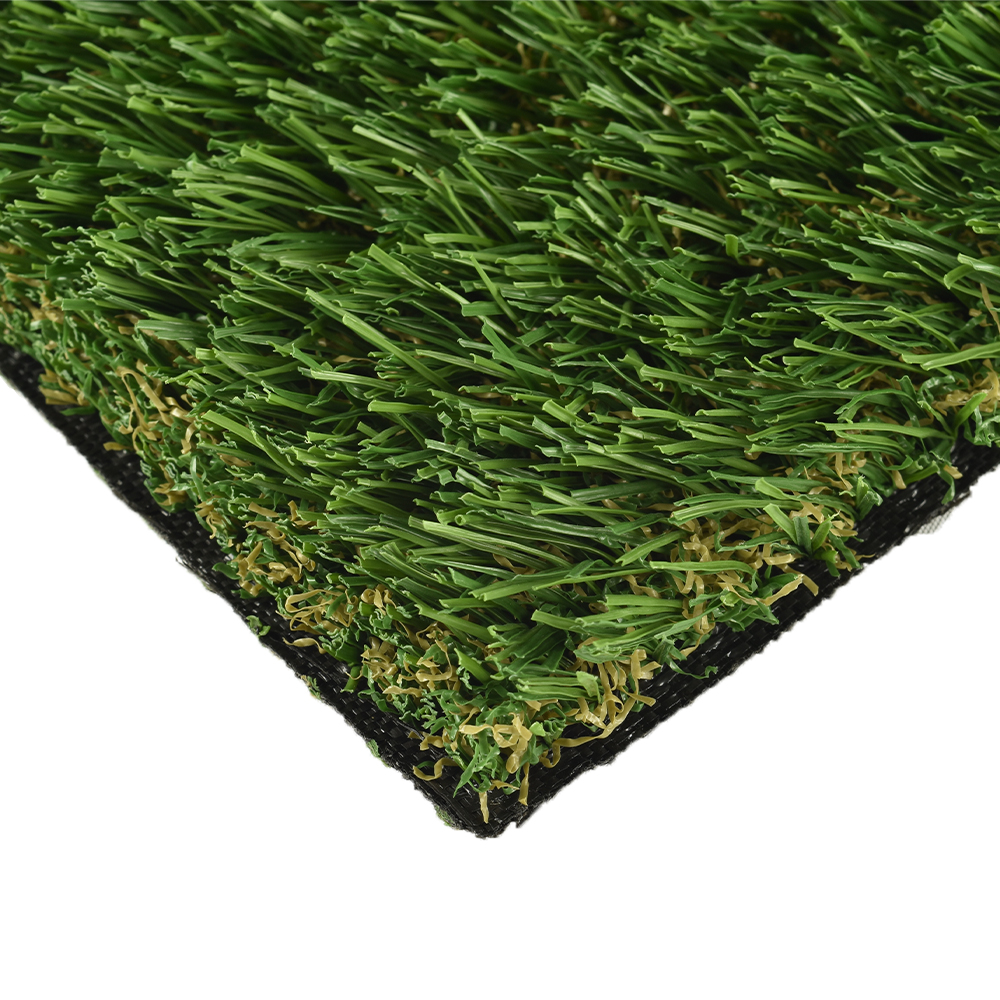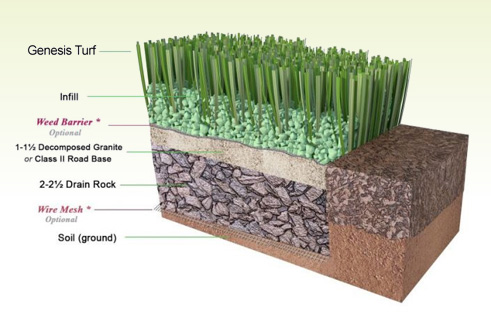Look Into the Environmental Benefits of Opting for Synthetic Grass Solutions
The fostering of artificial lawn options provides an engaging opportunity to address pressing ecological challenges. By significantly lowering water use and lessening the application of harmful chemicals, these options not only advertise lasting landscaping but likewise protect regional environments. In addition, the lower carbon impact connected with reduced upkeep activities adds to a much more lasting strategy to land management. Nevertheless, the ramifications of these benefits extend past simple conservation initiatives, increasing inquiries regarding their long-lasting influence on environment conservation and total eco-friendly equilibrium. Exploring these dimensions exposes an intricate interplay worth thinking about.
Water Preservation Perks
Among the most significant benefits of synthetic turf is its capability to preserve water. Typical turf yards require considerable watering, specifically in areas prone to dry spell or water constraints. On the other hand, synthetic grass does not require watering, dramatically minimizing the total demand for water resources. This function is specifically valuable in arid areas where water scarcity is a pushing problem.
By eliminating the need for routine watering, man-made lawn adds to sustainable landscape methods and aids reduce the ecological effect of extreme water usage. In addition, the preservation of water includes the decrease of drainage, which can bring about dirt disintegration and river contamination.
Additionally, the installation of man-made lawn allows communities and property owners to allot water resources much more effectively, concentrating on necessary uses such as drinking water and agriculture. The shift towards fabricated lawn not only promotes liable water use yet additionally lines up with wider ecological goals targeted at protecting natural deposits.
As areas progressively prioritize sustainability, the water preservation benefits of synthetic grass provide an engaging instance for its adoption in household and industrial landscape design projects.
Lowered Chemical Use
The shift to man-made grass substantially decreases the reliance on chemical therapies generally made use of in all-natural lawn upkeep. Traditional grass monitoring usually involves the application of herbicides, fertilizers, and pesticides to promote development and control bugs. These chemicals can position risks to human health and wellness, neighborhood wildlife, and the setting, adding to soil and water contamination.
On the other hand, synthetic grass gets rid of the demand for these damaging materials. When set up, it requires very little upkeep, largely including regular cleaning and infrequent infill replenishment. This reduction in chemical use not only benefits the prompt environment yet likewise adds to wider environmental stability. By minimizing the release of artificial substances into the community, fabricated lawn promotes healthier dirt and water systems.
Additionally, the lack of chemical overflow related to synthetic grass installments helps shield neighborhood waterways from contamination, sustaining water life and preserving biodiversity. Arizona artificial turf. As areas significantly focus on lasting methods, choosing man-made grass presents a practical service that lines up with ecological conservation goals. Via this change, residential or commercial property owners can delight in lush green rooms without jeopardizing environmental health and wellness, leading the way for a more sustainable future
Reduced Carbon Impact

Additionally, the installment of synthetic lawn can result in considerable water conservation. All-natural lawns need considerable quantities of water for watering, which not only includes in the carbon footprint connected with water removal and treatment yet likewise pressures local water sources. In contrast, synthetic grass requires minimal maintenance, calling for no watering, thus considerably lowering water usage and its linked energy expenses.
Furthermore, the long life of synthetic grass adds to its reduced carbon impact. With a life expectancy of as much as 15 years or more, the requirement for regular substitutes is lessened, causing much less waste and reduced power consumption in manufacturing and dealing with standard lawn choices. On the whole, synthetic grass offers a sustainable alternative for environmentally mindful landscaping.
Environment Conservation
Environment conservation is a critical consideration in the debate over landscape design selections, especially when comparing synthetic grass to natural grass. All-natural lawn yards usually need considerable upkeep, including making use of fertilizers, chemicals, and herbicides, which can detrimentally affect local communities. These chemicals can seep into the soil and rivers, hurting native vegetation and animals and interrupting local environments.
Artificial turf removes the need for unsafe chemicals, thereby securing neighboring wildlife and maintaining the stability of bordering ecological communities. The setup of artificial lawn can lead to the conversion of previous grass areas into more biodiverse landscapes, such as pollinator gardens or indigenous plant areas, which can support regional wildlife.
Eventually, the shift to synthetic lawn not only saves water and decreases upkeep initiatives yet additionally cultivates an extra unified relationship in between human tasks and the natural surroundings, advertising habitat preservation while doing so.
Long-Term Sustainability
Long-lasting sustainability is an important consider reviewing the benefits of synthetic lawn over conventional yard yards. One of one of the most considerable advantages of synthetic grass is its toughness; it can last approximately 15-20 years with very little maintenance, whereas all-natural yard needs constant reseeding and substitute. This longevity lowers the requirement for continuous sources, such as water, fertilizers, and chemicals, which are necessary for maintaining a healthy and balanced turf lawn.
Furthermore, fabricated lawn adds to a reduction in carbon emissions related to yard treatment equipment. Standard lawns usually call for gas-powered lawn mowers, trimmers, and blowers, every one of which add to air contamination. Turf installation phoenix az. On the other hand, synthetic grass eliminates the requirement for such devices, promoting a cleaner atmosphere
Moreover, the manufacturing of synthetic lawn increasingly makes use of recycled materials, improving its sustainability profile. As manufacturers embrace eco-friendly techniques, the ecological footprint of fabricated lawn proceeds to reduce.

Conclusion
The adoption of fabricated grass solutions provides significant ecological advantages, including considerable water conservation, minimized reliance on unsafe chemicals, and a lower carbon impact. Artificial turf aids in maintaining natural environments by lessening land disturbance and promoting long-lasting sustainability via the usage of resilient products. Jointly, these factors emphasize the potential of synthetic grass to contribute favorably to environmental health and supply a sensible alternative to traditional landscape look at this web-site design methods in a progressively resource-conscious world.
In comparison, fabricated grass does not require watering, dramatically lowering the total need pop over to this web-site for water resources. By minimizing the launch of artificial compounds right into the ecological community, fabricated grass promotes much healthier soil and water systems.
Furthermore, the setup of fabricated turf can result in significant water preservation. In comparison, man-made lawn requires minimal upkeep, needing no watering, thus substantially minimizing water usage and its connected power expenses.
